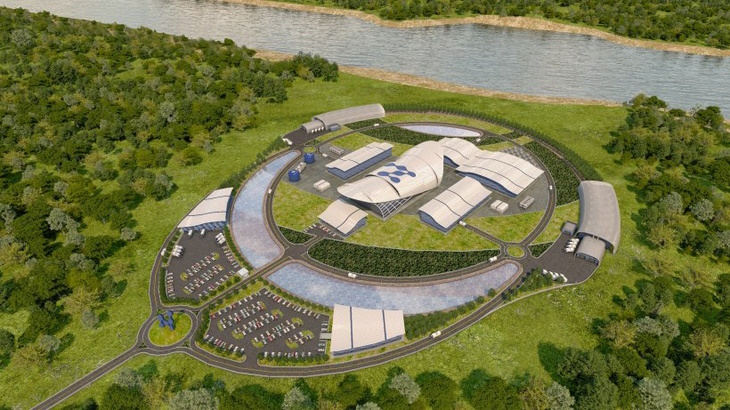
The NRC completed its first rulemaking for an SMR design - NuScale Power's small modular reactor - last year, but has not yet finalised its rulemaking on emergency preparedness (Image: NuScale)
The proposed rulemaking - Emergency Preparedness Requirements for Small Modular Reactors and Other New Technologies - would amend the US regulations to add new emergency preparedness requirements for small modular reactors (SMRs) and other new technologies such as non-light-water reactors, and would enable emergency planning zones for such reactors to be scalable to reflect their smaller sizes, lower power densities and lower probability of severe accidents, amongst other things.
The proposed rule was published for public comment in May 2020, which - after a short extension - ended in September. The final rule package was submitted to NRC commissioners for approval in January 2022.
"Commissioners are generally expected to vote on final rules in 60 days, but in this case the final rule publication date has been extended multiple times without explanation," the five pro-nuclear groups say in a joint letter to the US regulator. "Currently, the NRC rulemaking page says the final rule is scheduled for publication on 3 January, 2024. If this timeline holds, it would mean a duration of over 2 years since the final rule was submitted to the Commission for approval. This is in stark contrast to the NRC's Efficiency principle of good regulation which states 'Regulatory decisions should be made without undue delay'."
The "extensive delay" is causing "regulatory uncertainty" for developers who are preparing licensing applications, the groups said. Until a decision is made, future applicants find themselves faced with the prospect of preparing two emergency preparedness plans: one based on the assumption that the rule will be in effect when they submit their applications and another contingency plan in case the rule is not yet finalised.
This uncertainty has already resulted in applicants changing their emergency preparedness approach during the pre-application engagement process, or delaying pre-application engagement until there is greater certainty around what procedures will be available, the groups said. It creates an extra burden for NRC staff, reduces the value of pre-application engagement for applicants and the NRC alike, and discourages future applicants. It is also contrary to the Nuclear Energy Innovation and Modernisation Act of 2019, which directed the NRC to develop and implement strategies for the increased use of risk-informed and performance-based licensing techniques within two years. "The NRC is over two and a half years late on this statutory deadline," the groups said.
"A decision on the final emergency preparedness rule would increase regulatory predictability, reduce the regulatory burden for the applicant and the staff, and align with Congressional direction. More efficient and effective licensing contributes to meeting national environmental and energy security objectives. The Commission should act expeditiously to approve the final rule and update the associated Regulatory Guide 4.7, in the public interest."